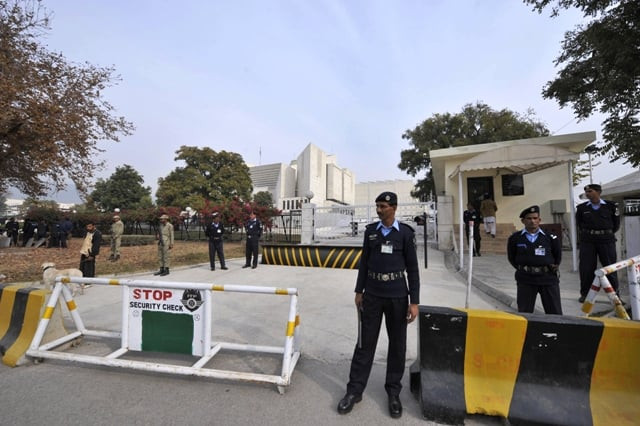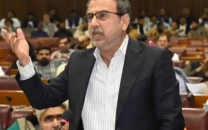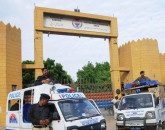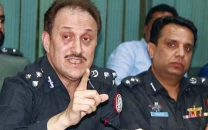Memogate case: SC proposes nomination of sitting judge to probe scandal
Asma Jehangir says she faces difficulty in meeting Haqqani and is also being threatened.

Memogate case: SC proposes nomination of sitting judge to probe scandal
Chief Justice Iftikhar Muhammad Chaudhry, heading a nine-member bench, said: “We are ready to constitute a judicial body to investigate the case because all parties have agreed that it’s needed.”
Asma Jehangir said that her client, former Ambassador to the United States Husain Haqqani also agreed to the probe but sought protection of the due process of law.
“This is the highest law forum of the country, where do I go for a solution from here?” Jehangir said. She asked the court to allow the parliamentary committee on national security to carry out an investigation.
During the hearing, Justice Jawad Khwaja observed that the parliamentary committee cannot ensure due process. Jehangir replied to this point that the very maintainability of the petition in the Memogate case was also in question because the case had political implications.
The chief justice asked Attorney General of the Supreme Court Maulvi Anwarul Haq to state why the federal government had not filed a reply in the case on whether it is accepting or refusing the statements submitted by Chief of Army Staff General Ashfaq Pervez Kayani and Inter-Services Intelligence Director General Shuja Ahmed Pasha.
Haq told the court that the federal government is in the process of filing a reply.
The chief justice said that Mahmood Khan Achakzai's case could serve as a good reference in deciding what the court should do in such matters.
Asma Jehangir faces difficulty in meeting Haqqani
When the chief justice inquired about a rejoinder from Haqqani, Jehangir told the court that she was having difficulties in meeting her client because of “security hazards”.
The chief justice directed the attorney general to arrange a meeting between Haqqani and his counsel Jehangir.
Jehangir told the court that she was being threatened along with her client Haqqani. She also said that she had highlighted the problem in an e-mail written earlier to the Supreme Court registrar office.
The chief justice said they would be looking into the e-mail and assured Jehangir of protection.


















COMMENTS
Comments are moderated and generally will be posted if they are on-topic and not abusive.
For more information, please see our Comments FAQ